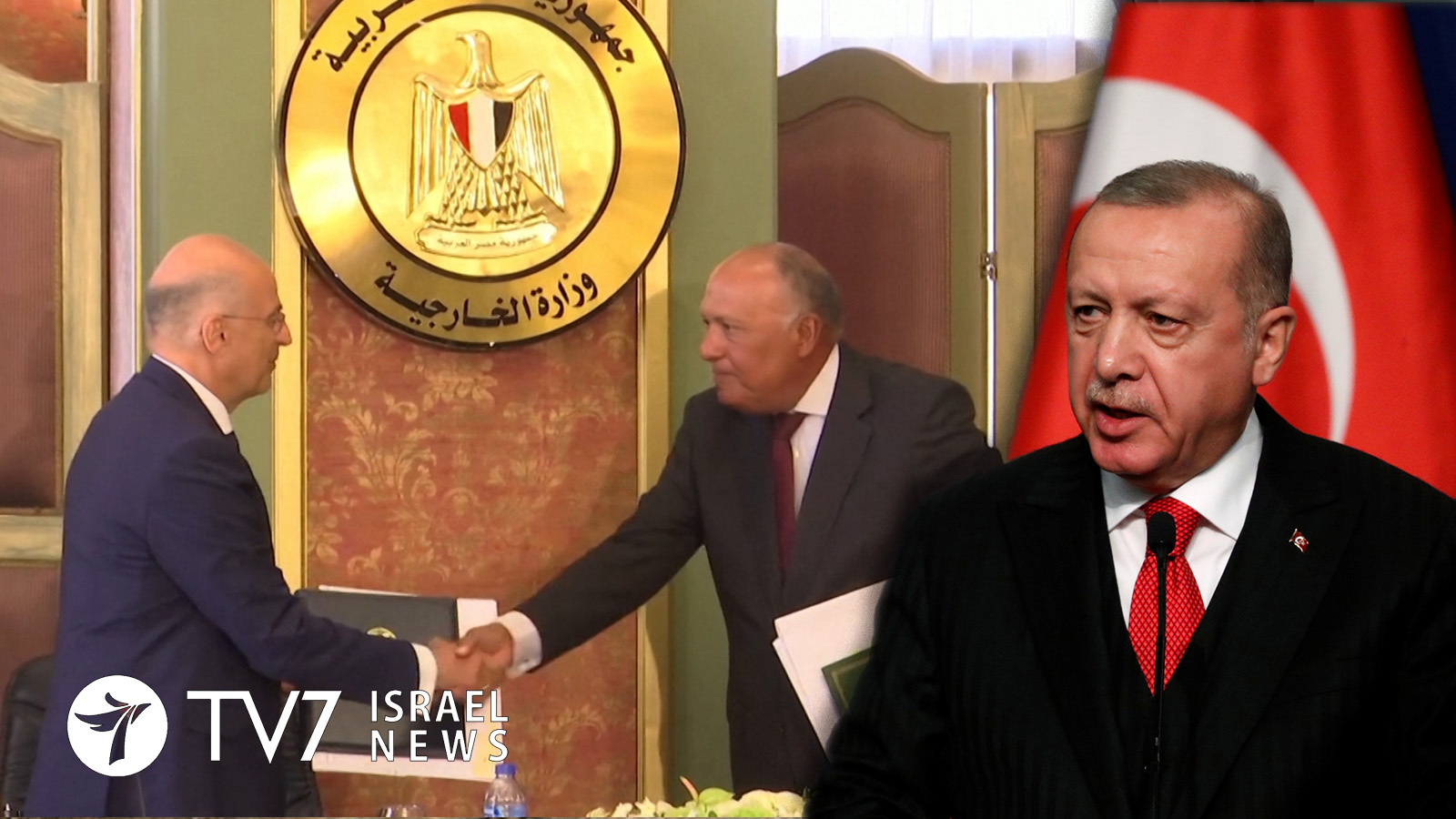Egyptian Foreign Minister Sameh Shoukry held a signing ceremony together with his Greek counterpart Nikos Dendias, in which the two top diplomats ratified a bilateral agreement on the designation of an exclusive economic zone (or EEZ) in an area of the eastern Mediterranean containing promising offshore oil and gas reserves.
“The Minister’s visit witnessed important developments in the history of our strong relations, which include our recent co-signing of an agreement that designates the exclusive economic zone for the Arab Republic of Egypt and its dear Greek Republic,” said Shoukry. He added that, “the signing came in an effort to maximize the utilization of the resources available in the exclusive economic zone, especially promising oil and gas reserves. It also opens new pathways for more regional cooperation in the area of energy, given the two countries’ membership in the EastMed gas forum.”
The bilateral agreement effectively nullifies a similar accord between Turkey and Libya’s Government of National Accord. Last year, those two parties agreed to maritime boundaries – in a deal that Egypt and Greece decried as illegal and a violation of international law. Athens maintains that Turkish-Libyan agreement infringed on its continental shelf, specifically off the Greek island of Crete. Now, as part of a maneuver to counter – what Athens views as Ankara-orchestrated attempt to infringe on Greek maritime rights – the agreement with Egypt is expected to serve as legal grounds for additional activities.
Greek Foreign Minister Dendias proclaimed that, “the agreement with Egypt is within the framework of international law, respects all concepts of international law and the law of the sea and good neighborly relations, and contributes to security and stability in the region.”
It is important to note that according to the map of the agreement ‘a demarcation line of Greek and Egyptian maritime boundaries appear to leave no possibility of a link between Turkey and Libya.’
Turkish Foreign Minister Mevlüt Çavuşoğlu was quick to respond to the Greek and Egyptian maritime EEZ agreement. “It’s obvious by the given coordinates that the deal not only violates the rights and continental shelf of Turkey but also of Libya,” insisted the Ankara’s top diplomat, stressing that, “Hence, an agreement that violates our continental shelf, which we have reported to the UN, is null and void and the reason why we’ve come to this point is that countries like Greece and the Greek Cypriot administration, are trying to sign agreements with Egypt and Israel while ignoring Turkey.”
Minister Çavuşoğlu further stressed that while Ankara intends to persist with its activities in the Eastern Mediterranean, in accordance with its maritime agreement with the Libyan government in Tripoli; it will proactively assure that the world comprehends that the agreement between Athens and Cairo is null and void.
“We took clear, concrete steps to protect the rights of both ourselves and the Turkish Cypriots up until now. We continue our activities in the field not only with seismic research but also with our drilling vessels,” he said, before reiterating, “As I said before, this agreement is null. We’ll continue to show them and the world that this agreement is null and void on the table and in the field.”
